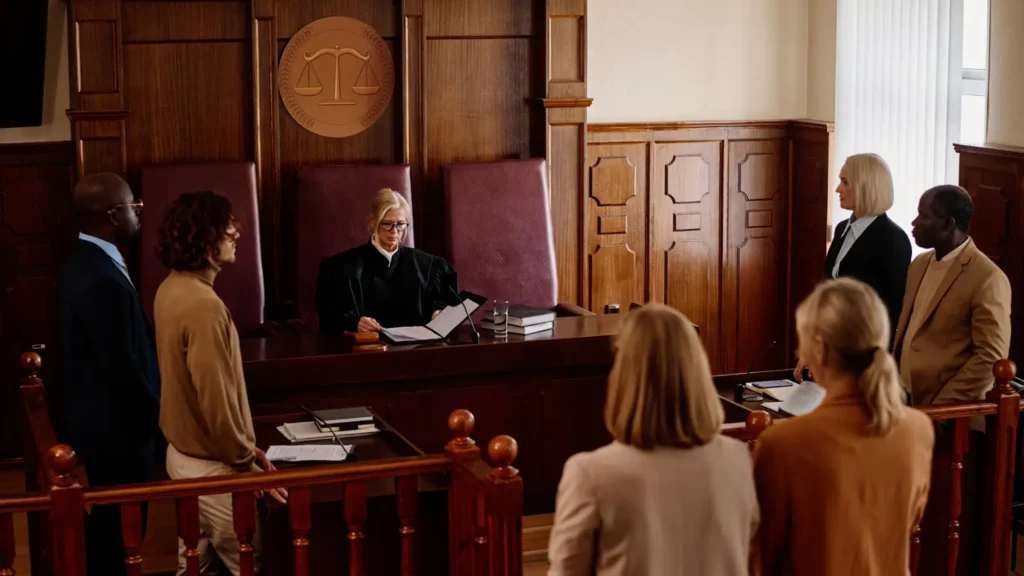When pursuing compensation after an accident, one of the most significant decisions you’ll face is whether to accept an injury lawsuit settlement or proceed to trial. Each option has its unique advantages and risks, and understanding these differences can help you make an informed decision. At McGlone Law in Terre Haute, Indiana, we’re here to guide you through this process with clarity and expertise.
What Is an Injury Lawsuit Settlement?
An injury lawsuit settlement is a resolution reached outside of court between the injured party and the defendant or their insurance company. This agreement typically includes a lump-sum payment in exchange for the injured party agreeing not to pursue further legal action related to the incident.
Settlements are common in personal injury cases because they provide a quicker resolution, allowing victims to receive compensation without the time and uncertainty of a trial. However, settlements may also come with trade-offs, such as accepting a lower amount than might be awarded at trial.
What Happens During a Trial?
If a settlement cannot be reached, the case proceeds to trial. During the trial, both sides present their arguments, evidence, and witness testimony before a judge or jury. The goal is to persuade the court to rule in favor of one party.
While trials offer the opportunity for a potentially higher payout, they also carry significant risks. There is no guarantee of a favorable verdict, and the process can be lengthy and stressful. Additionally, trials may involve court fees and other expenses that can impact the overall compensation received.
Key Differences Between Settlements and Trials
Time and Cost
Settlements are typically faster and less expensive than trials. Negotiating a settlement can often be completed in weeks or months, whereas trials can take years to resolve due to court schedules, legal filings, and appeals.
Certainty vs. Risk
A settlement provides a guaranteed outcome, giving you the assurance of receiving compensation. In contrast, a trial’s outcome is uncertain, and there is always a chance the court could rule against you.
Control Over the Outcome
Settlements allow both parties to negotiate terms, giving you some control over the final agreement. In a trial, the decision is entirely in the hands of a judge or jury, leaving less room for compromise.
Privacy
Settlements are private agreements, while trials are public proceedings. If privacy is a concern, opting for a settlement may be the better choice.
Factors to Consider When Deciding
Strength of Your Case
If the evidence strongly supports your claim, proceeding to trial might result in a higher payout. However, if there are uncertainties or weaknesses in your case, a settlement may be the safer option.
Financial Needs
Settlements provide quicker access to compensation, which can be critical if you face mounting medical bills or lost wages. Trials, while potentially offering higher compensation, require more time and financial resources upfront.
Emotional Impact
Trials can be emotionally taxing, especially if you are asked to relive the accident in court. Settlements often avoid the stress and emotional strain associated with lengthy legal battles.
How McGlone Law Can Help
Most cases at McGlone Law are settled without compromising on the settlement amount because we prepare every case as if we are going to trial. Our thorough preparation signals to the opposing side that if a fair settlement isn’t reached, we are ready to proceed to court—where there is a high likelihood of their loss, along with additional legal fees and wasted time. This strategic approach helps us secure high settlements for our clients without unnecessary delays.
Navigating the decision between an injury lawsuit settlement and going to trial requires skilled legal guidance. At McGlone Law, we understand the challenges you face and are committed to helping clients achieve the best possible outcomes.
Our experienced attorneys will evaluate your case, explain your options, and help you make informed decisions. Whether through negotiation or courtroom advocacy, we will fight tirelessly to secure the compensation you deserve.


